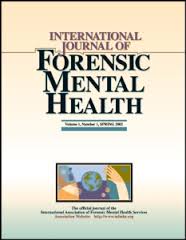Forensic mental health professionals are increasingly tasked with evaluating defendants who are culturally, linguistically, and socioeconomically diverse. There remains, however, little guidance on how to apply cultural competency principals to forensic mental health assessment. This article reviews some of the challenges that arise during such evaluations and practice recommendations that can mitigate these challenges. This is the bottom line of a recently published article in The International Journal of Forensic Mental Health. Below is a summary of the research and findings as well as a translation of this research into practice.

Featured Article | International Journal of Forensic Mental Health | 2018, Vol. 17, No. 4, 377-386
Addressing Linguistic and Cultural Differences in the Forensic Interview
Author
V. Barber Rioja, Rikers Island Correctional Health Services, New York, NY USA
B. Rosenfeld, Psychology, Fordham University, Bronx, New York, USA
Abstract
V. Barber Rioja, Rikers Island Correctional Health Services, New York, NY USA
B. Rosenfeld, Psychology, Fordham University, Bronx, New York, USA
Keywords
Diversity, cross-cultural, guidelines, interview
Summary of the Research
“With the increasing diversification of society, the need to understand and address linguistic and cultural differences has become a standard component of effective clinical practice…Yet translating the goal of cultural competence into practice remains an elusive task, particularly for those working in forensic mental health settings, where an incorrect assessment can have profound ramifications on both the individual being evaluated and society at large. Not only are Western societies becoming increasingly diverse, but ethnic and cultural diversity is even more dramatic in criminal justice settings…Many formulations of cultural competence encourage clinicians to engage in a continuous, ongoing process of learning, not in order to master a range of ‘cultures,’ but in order to understand the extent of one’s own limitations…” (p.377-378).
“Understanding the differences between one’s own experience and those of the individuals we seek to understand is particularly important for forensic psychologists, because cultural differences are not simply a product of immigration and language…Educational, socioeconomic, and religious differences are among the many factors that can impede the evaluation process, hindering the development of rapport, creating misunderstandings and perhaps even leading to incorrect conclusions about important psycho-legal questions. These issues are particularly impactful during the forensic interview process, as the development of rapport is critical to a successful interview and an accurate interpretation of both verbal responses…and non-verbal behaviors. The myriad ways that cultural differences impede effective forensic interviewing can be divided into those that are evident (and addressed) before the interview begins, the use (and training) of translators, and conducting the interview process itself” (p.378).
Translating Research into Practice
“As a starting point, the evaluator should be knowledgeable about not only the primarily language spoken by the individual, but whether there are regional dialects that might impact selection of a translator…Additional topics that may be relevant include obtaining information about the educational system and economic and political climate in the individual’s country of origin. Religious and spiritual traditions, as well as the existence of traditional medical explanations for, or treatments to address health problems can be crucial to recognizing symptoms that may be masked by cultural norms or conversely, culturally normative behaviors and beliefs that may be mistakenly interpreted as evidence of a mental disorder” (p.378).
“Determining whether there are culturally unique symptoms, such as ‘sinking heart’ described by Punjabi Sikh’s…or the phenomenon of ‘wind’ among Cambodian trauma survivors…is another critical aspect of preparation, as these symptoms may be ignored or interpreted incorrectly by clinicians who are unfamiliar with culturally-specific symptom manifestations. Cultural norms regarding the role of family or community in decision making, as well as patterns of emotional expression and self-disclosure can also be critical to the interview process…Furthermore, some topics may be seen as ‘taboo’ in particular cultures (e.g., use of alcohol, thoughts of suicide), and inquiring about these topics can dramatically impact the evaluation process. While we do not recommend avoiding such topics…the interviewer’s ability to frame questions in a culturally sensitive manner, that optimizes accurate responses, is dependent on an awareness of the cultural implications of this information” (p.379).
“Another key decision point that typically arises before the interview has begun is whether a translator is needed…Deciding whether to conduct the interview in the person’s native language versus the language of the host country depends in part on an analysis of whether subtleties are more likely to be lost in translation versus through misunderstanding…when fluency is questionable, it is advisable to have a translator available if needed, even if this precaution turns out to be unnecessary…there may still be aspects of the interview that require assistance in order to minimize misunderstandings (e.g., when inquiring about hallucinations or flashbacks, or determining whether beliefs are delusional…Another critical aspect of preparing a translator is to emphasize the importance of a word-for-word translation…” (p.380-381).
“Being aware of the cultural factors that can affect the informed consent process is of particular relevance in forensic evaluations because substantial rights are often at risk and the methods and procedures of forensic practitioners may not be known to the evaluatee…it is important to consider the informed consent process is deeply rooted in the Western concepts of autonomy and self-determination…the application of formal consent procedures…may be perceived as ‘alienating and dehumanizing’ by individuals unfamiliar with Western standards for informed consent…In forensic settings, where written informed consent may be desirable, documents should be written at a level appropriate to the individuals’ reading level, translated into the evaluatee’s native language in advance of the evaluation…” (p.382).
“…a thorough forensic evaluation should include an inquiry into any symptoms or disorders that may be unique to, or have differential relevance for the individual’s particular culture. This may begin with specific questions based on the background research conducted prior to the evaluation…but should also include more open-ended questions related to changes the evaluatee has observed and interventions that have been sought or encouraged by family or friends. Inquiring about whether the individual has sought treatment from traditional healers or faith-based interventions can help the clinician identify problems or symptoms that may be unique to the individual’s cultural background” (p.383).
“Several domains of the mental status exam are particularly vulnerable to cultural influences, including the assessment of the evaluatee’s attitude, emotions, and level of insight…In addition to the ‘typical’ reasons why an evaluate may be reluctant to self-disclose….there are also cultural reasons why individuals may decide not to self-disclose. For example, in collectivistic societies…the individual may decide not to answer questions because any negative aspect of their life could reflect negatively on the entire family…Class-bound values may also play a role, such as when an individual who has experienced oppression and discrimination does not trust the evaluator and may believe that any information disclosed will be used against them…Individuals who are from a culture that has strictly defined roles of dominance and deference, and who are uncomfortable in a situation where the roles are more ambiguous, may also be less likely to self-disclose in the clinical interview” (p.384).
“…assessing guilt and remorse are critical to the assessment of psychopathy, and have important implications for assessment of risk for future violent behavior or sexual offending. Accurate assessment of affect is also relevant to the diagnosis of many other disorders, including depression, posttraumatic stress disorder, and schizophrenia. However, many cultural groups do not value emotional expressiveness and instead emphasize the restraint of strong feelings…which can be misinterpreted as coldness or callousness when culture is not taken into consideration. Likewise, individuals from collectivistic cultures more often feel shame for wrongful behaviors…as opposed to guilt…which may influence the evaluator’s perception of the evaluatee’s mental state…a lack of insight into the existence of these feelings may reflect culturally normative behavior, rather than a symptom of a mental disorder” (p.384).
Other Interesting Tidbits for Researchers and Clinicians
“Gender roles and social class can also have particular importance for the forensic interview…For example, some cultures strictly limit interactions between men and women that are not married to one another…These restrictions may impede, or even prevent the interview itself, or necessitate the addition of another person in the interview room. Similarly, the type of clothing worn by the evaluator may prove problematic if it violates cultural norms” (p.379).
“Although substantial information may be gleaned from readily available sources (e.g., Wikipedia), detailed information may be obtained from official government websites…or independent agencies (e.g., Amnesty International). For more in depth or nuanced information, consultation with someone very familiar with the evaluatee’s particular region or subculture may be useful…” (p.397).
Join the Discussion
As always, please join the discussion below if you have thoughts or comments to add!






















